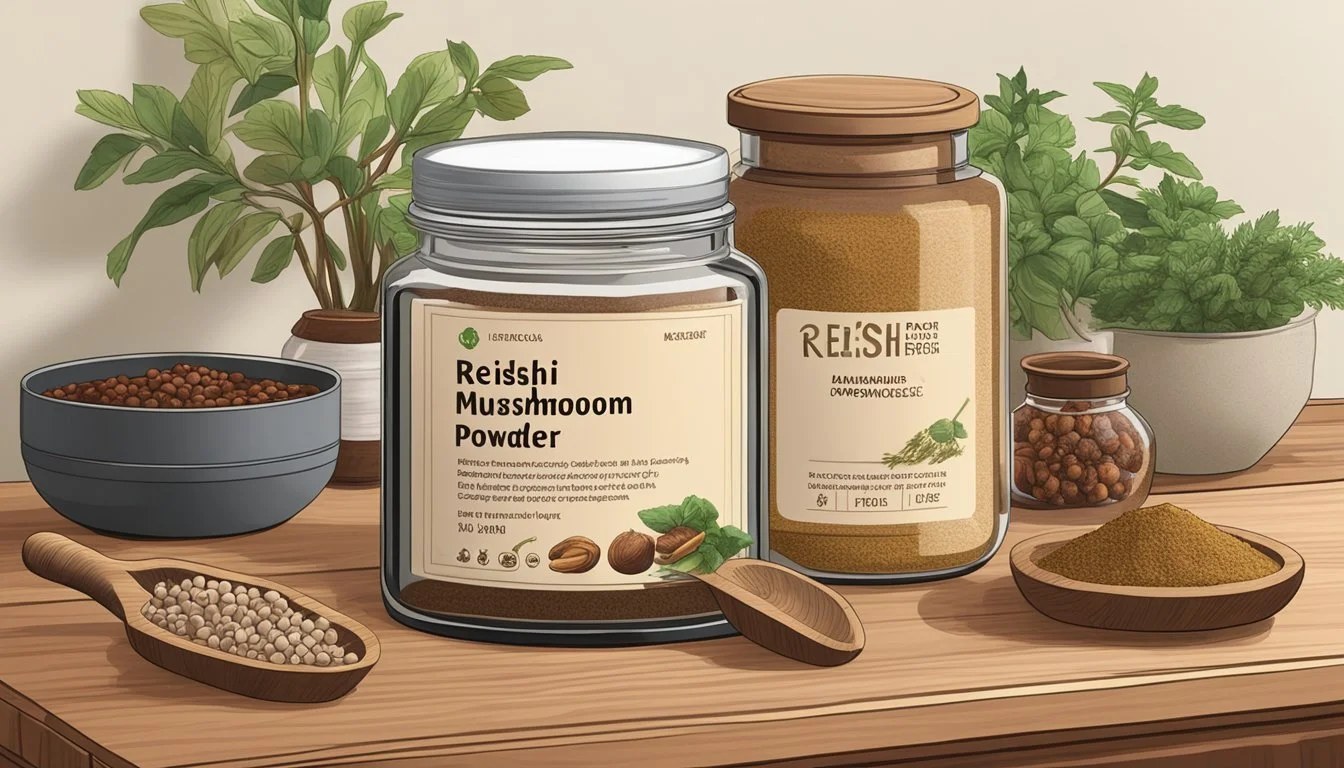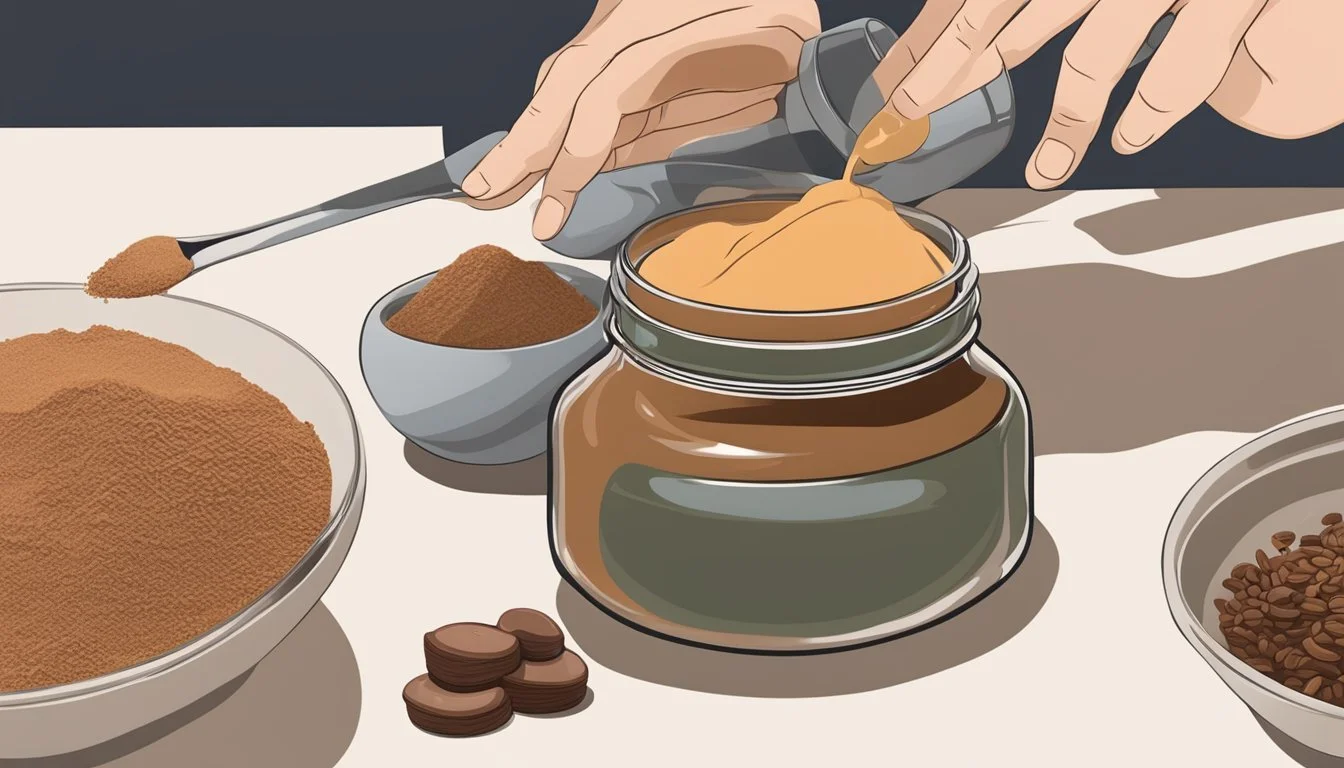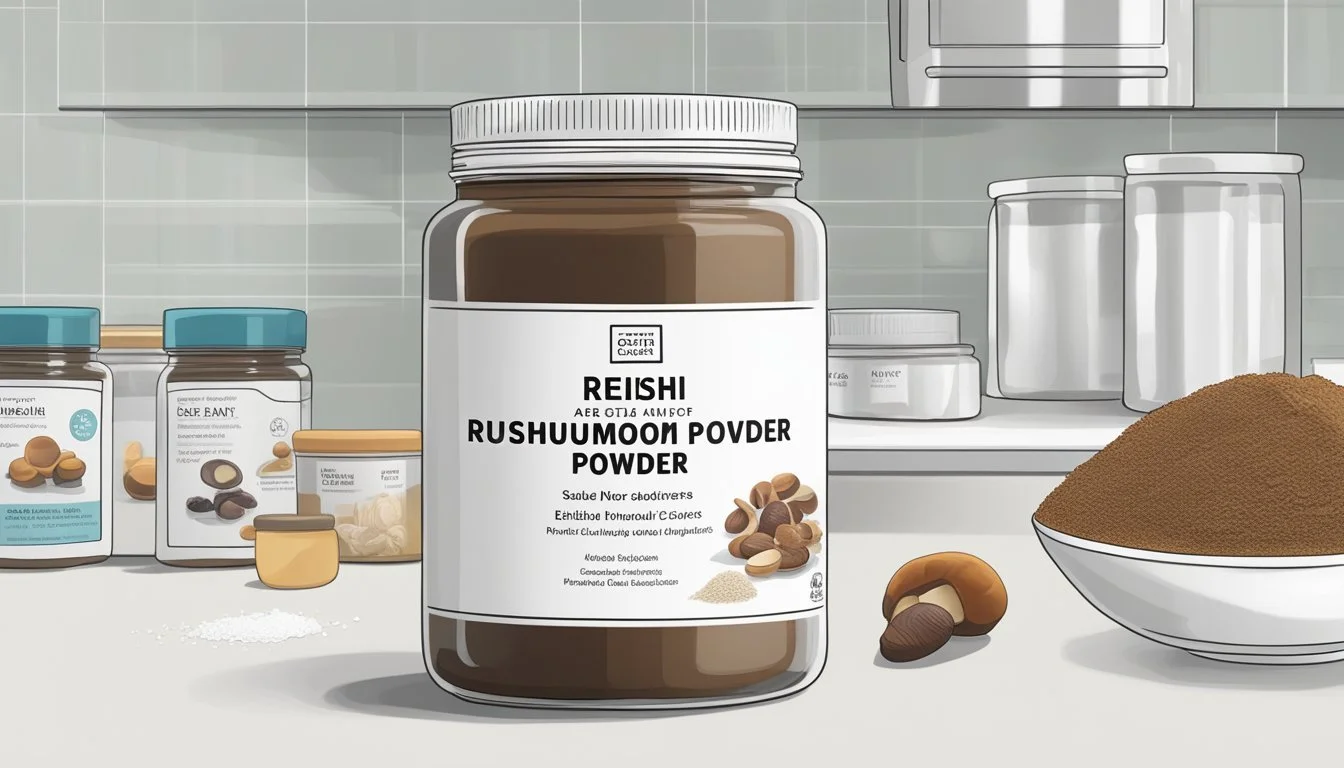Reishi Mushroom Powder Substitutes
Effective Alternatives and Their Benefits
Reishi mushroom powder, also known as Ganoderma lucidum, is a popular supplement in traditional Eastern medicine. Revered for its potential health benefits, it is often used to support the immune system, reduce inflammation, and promote relaxation. However, not everyone has access to Reishi mushroom powder or might be looking for alternatives due to taste preferences or availability.
For those seeking substitutes that maintain some of the medicinal benefits of Reishi mushrooms, lion’s mane, chaga, and shiitake mushroom powders are excellent options. These alternatives also contribute to overall wellness through immune support and antioxidant properties, making them suitable additions to various diets and health regimens. Lion’s mane, for instance, is renowned for its potential cognitive benefits, which can provide an added advantage.
When choosing a substitute for Reishi mushroom powder, it is important to consider both the health benefits and flavor profiles to ensure the best fit for your needs. Whether you are a seasoned user of medicinal mushrooms or new to this world, exploring these substitutes can help you continue to reap the benefits of this natural tradition.
Understanding Reishi Mushroom Powder
Reishi mushroom powder, derived from the Reishi mushroom (Ganoderma lucidum), has a long history of use in Eastern medicine, particularly in Traditional Chinese Medicine (TCM). This section delves into the origins, key components, and health benefits associated with Reishi mushroom powder.
Origins and Historical Use
Reishi mushrooms, also known as Lingzhi in Chinese, have been used for thousands of years in various parts of Asia. They are strongly associated with Traditional Chinese Medicine, where they are revered as “the mushroom of immortality.” Historically, these mushrooms were reserved for royalty due to their supposed ability to promote longevity and vitality.
Lingzhi grows in humid and warm regions, often found on decayed hardwood logs. Its use is documented in ancient scripts, where it is credited with enhancing health, strength, and longevity. In Japanese and Korean cultures, Reishi is also esteemed for these properties and is known as mannentake and yeongji, respectively.
Key Components and Properties
Reishi mushroom powder contains a range of active compounds including beta-glucans, polysaccharides, triterpenes, and antioxidants. These components work synergistically to provide the health benefits traditionally ascribed to Reishi.
Beta-Glucans: Known to enhance the immune system by activating macrophages and other immune cells.
Polysaccharides: Contribute to immune support and may have anti-tumor properties.
Triterpenes: Compounds that have anti-inflammatory and liver-protective effects.
Antioxidants: Protect cells against oxidative damage and support overall cellular health.
The combination of these elements helps in maintaining a balanced immune response and protecting the body from various stressors.
Health Benefits Overview
Reishi mushroom powder is used primarily for its health benefits, which are supported by both traditional use and modern research.
Immune System: It strengthens the immune system, making it effective in combating infections and disease.
Cancer: Some studies suggest it may help inhibit the growth of cancer cells.
Heart Health: Reishi helps in maintaining healthy blood pressure and cholesterol levels, thus supporting heart health.
Liver Health: It protects the liver by enhancing its detoxification capabilities.
Inflammation and Stress: Reishi's anti-inflammatory properties reduce inflammation, while it also helps manage stress, anxiety, and depression.
Blood Sugar: It is known to help stabilize blood sugar levels, making it beneficial for individuals with diabetes.
The holistic application and adaptability of Reishi mushroom powder make it a cherished component in the realm of functional foods and supplements.
Using Reishi Mushroom Powder
Reishi mushroom powder is versatile in its applications, making it a valuable addition to various diets and routines. It can be consumed directly, integrated into dietary supplements, or used in culinary creations.
Consumption Methods
Reishi mushroom powder can be easily consumed in numerous ways. A common method is dissolving one scoop, approximately 3 grams, into hot water, coffee, or tea. Stir the powder well to ensure it fully dissolves.
For those who prefer capsules, the powder is also available in this form. Capsules are convenient for consistent daily dosages. Always check the label for the suggested dosage to ensure safe consumption.
Mushroom supplements containing Reishi are another option. These often combine Reishi with other beneficial mushrooms or herbs, enhancing overall effectiveness.
Dietary Supplement Integration
Reishi mushroom powder is often included in dietary supplements. These supplements may come in various forms, such as capsules, powders, or tinctures. The recommended daily dosage varies, but it’s crucial to follow the manufacturer’s guide.
Integrating Reishi powder into your daily routine can be seamless; it can be added to protein shakes or smoothies. This not only helps in maintaining consistency but also allows for a nutrient-packed start to the day.
The quality of the mushroom powder is vital. Look for products that ensure minimal processing and high purity to maximize the health benefits.
Culinary Uses and Pairings
In the kitchen, Reishi mushroom powder can enhance both flavor and nutrition. Its earthy flavor makes it a great addition to soups, stews, and sauces.
For a touch of umami, it can be mixed into stir-fries or sprinkled over roasted vegetables. Reishi pairs well with other mushrooms like Shiitake, boosting the dish’s nutritional profile.
Reishi tea is another favored preparation. Boil the powder with water and let it simmer until the water reduces by half. This concentrated tea can be enjoyed hot or stored in the refrigerator for later use.
Experimenting with different recipes can help integrate Reishi mushroom powder into your diet more easily.
Substitute Options for Reishi Mushroom Powder
To replace Reishi mushroom powder, there are several alternatives, including other medicinal mushrooms, common kitchen substitutes, and various supplement options to ensure you still receive beneficial compounds.
Other Medicinal Mushrooms
Shiitake mushrooms are a popular choice due to their rich nutritional profile. They contain vitamins B5 and D, along with beneficial minerals like copper. Shiitake mushrooms also have potential anti-inflammatory and anti-microbial properties.
Porcini mushrooms offer an earthy flavor similar to Reishi and are packed with antioxidants. They can be used in soups, stews, and sauces, enhancing the dish with their unique aroma and taste.
Maitake mushrooms are another good substitute, known for supporting the immune system and providing essential vitamins and minerals.
Common Kitchen Substitutes
Nutritional yeast can be a practical substitute for Reishi powder in certain recipes. It provides a savory, umami flavor and is rich in B-vitamins, making it a good addition to sauces and soups.
Garlic powder offers a distinct flavor and texture similar to mushroom powder. Though it has a different taste profile, it works well in savory dishes where the mushroom powder would typically be used.
Dried mushrooms, like enoki or oyster, can also be ground into a powder and used as a direct substitute. They add depth to dishes and are easily accessible in most kitchens.
Supplement Alternatives
Mushroom supplements containing a mix of various types, like lion's mane and cordyceps, provide a similar range of benefits as Reishi. These are available in capsule or powder form and support overall health.
Herbal medicine options such as ashwagandha or ginseng can offer immune-boosting and adaptogenic properties comparable to Reishi. These herbs can be taken as teas or supplements.
Vitamin and mineral supplements ensure that you receive any nutrients you might miss by not using Reishi powder. A multivitamin with antioxidants can help cover these nutritional gaps effectively.
Safety, Side Effects, and Interactions
Using reishi mushroom powder can offer various health benefits, but it can also pose risks, especially for certain individuals or when combined with specific medications. It is crucial to be informed about its safety, potential side effects, and interactions.
Potential Side Effects
Reishi mushroom powder is generally safe for most people, but it can cause several side effects. Users may experience digestive issues such as nausea, stomach upset, and diarrhea.
Some individuals report dizziness or dry mouth after consumption. Skin reactions like rashes and itching are also possible.
More severe side effects, such as liver problems, though rare, have been documented. Monitoring for any adverse reactions is essential when incorporating reishi into a health regimen.
Considerations for Specific Populations
Certain populations need to exercise caution when using reishi mushroom powder. Individuals with bleeding disorders should avoid it due to its anticoagulant properties, which may exacerbate bleeding.
Pregnant and breastfeeding women should consult healthcare providers before use. Those with low blood pressure might also face risks, as reishi can further lower blood pressure.
People undergoing surgery should discontinue reishi use two weeks prior to reduce bleeding risk. These precautions can help avoid serious complications.
Interactions with Medications
Reishi mushroom can interact with various medications, necessitating careful consideration. Its anticoagulant effects may enhance the impact of blood thinners, increasing bleeding risks.
Those on immunosuppressants should be cautious, as reishi's immune-boosting properties may interfere with these drugs.
Chemotherapy patients need to consult their doctors since reishi could interact with treatment protocols. Additionally, combining reishi with blood pressure medications may result in excessive blood pressure reduction.
Patients should always discuss reishi use with their healthcare providers to ensure safe integration with existing treatments.
Selecting High-Quality Reishi Products
When looking for high-quality Reishi mushroom supplements, it is crucial to evaluate the sources and understand the importance of dosage and purity. This ensures efficacy and minimizes potential side effects.
Evaluating Reishi Product Sources
Quality Reishi mushroom supplements often originate from reputable suppliers. These suppliers typically provide transparency regarding sourcing and processing practices.
Reishi Types: There are several types of Reishi, including red, black, and white Reishi. Red Reishi is the most studied and preferred for its health benefits.
Mycelium vs. Fruiting Body: Some supplements use Reishi mycelium, while others use the fruiting body. The latter is generally considered more potent.
Extract vs. Whole Powder: Extracts provide a concentrated form of Reishi, often with specified levels of bioactive compounds like triterpenes and polysaccharides.
Quality control and certification by third-party labs can further ensure the product meets high standards.
Importance of Dosage and Purity
Appropriate dosage and purity are critical in Reishi mushroom's effectiveness and safety.
Dosage: The optimal dosage can vary. Daily doses typically range from 1.5 to 9 grams for powdered forms and corresponding extracts. Consulting a healthcare provider can help tailor the dose.
Purity: Pure products should be free from contaminants like heavy metals and pesticides. Look for products with minimal fillers and additives.
Bioactive Components: High-quality supplements often specify levels of key compounds such as beta-D-glucan and ganoderic acids, which are indicative of potency.
Careful attention to these aspects helps maximize benefits while reducing the risk of side effects.
Impact on Well-being and Quality of Life
Reishi mushrooms, known for their health benefits, can positively influence emotional wellness, cognitive function, and physical health. These benefits have made them a favored choice for those aiming to improve overall quality of life.
Emotional Wellness
Reishi mushrooms offer significant benefits for emotional wellness. They are known to reduce stress and promote relaxation. The active compounds in Reishi can help regulate the nervous system, which can alleviate symptoms of anxiety and insomnia.
By promoting a healthy stress response, Reishi aids in managing neurasthenia. This condition, characterized by fatigue and irritability, often arises from chronic stress. Regular consumption of Reishi can enhance emotional stability and overall mental health, making it a powerful natural remedy.
Cognitive Benefits
The bioactive compounds in Reishi mushrooms also support cognitive functions. They contribute to improved memory and focus. Antioxidants in Reishi help protect brain cells from damage and reduce inflammation.
These mushrooms can boost immune function, providing protection against infections that might otherwise impair cognitive health. Enhanced cognitive performance is linked to better quality of life, highlighting Reishi's role in mental well-being.
Physical Health Improvements
Reishi mushrooms are beneficial for physical health. They support cardiovascular health by helping lower blood pressure and cholesterol levels. Additionally, Reishi is known to strengthen the immune system, aiding in the prevention of infections.
Reishi mushrooms also have potential in cancer treatment. Compounds in Reishi exhibit anti-tumor properties, which can inhibit the growth of certain cancers. This explains their traditional use in treating various ailments, from hepatopathy to carcinoma. The improvements in physical health can lead to a better overall quality of life.








